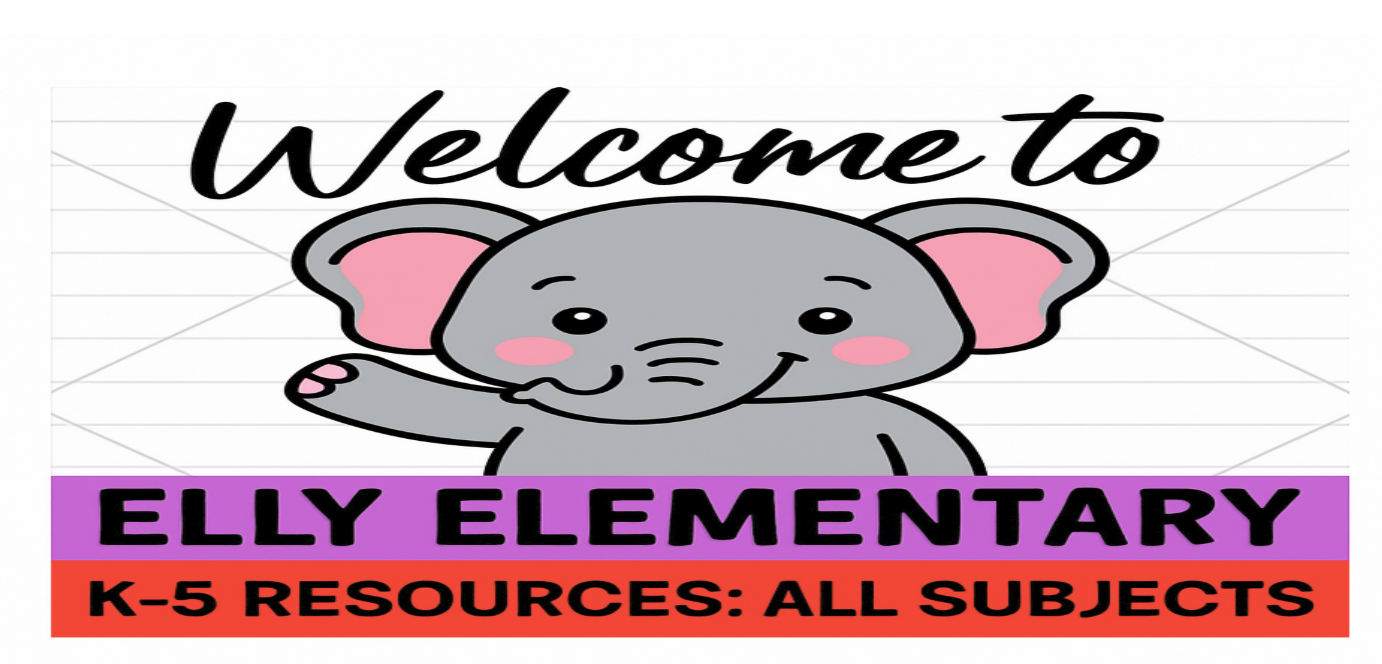It is important to teach children strategies for reading along with basic phonemic awareness and fluency for several reasons:
- Comprehension: Reading strategies help children understand and make sense of what they read. These strategies include predicting, summarizing, questioning, and making connections. When children use these strategies, they can comprehend texts more effectively. Check out my store, Elly Elementary, for book guides to help in reading comprehension.
- Problem-solving: Teaching reading strategies empowers children to become independent readers and problem solvers. They learn how to tackle unfamiliar words, make inferences, and analyze the structure of texts, which are essential skills for academic success.
- Critical thinking: Reading strategies encourage critical thinking skills by prompting children to evaluate, analyze, and synthesize information from texts. This enhances their ability to think critically and make informed judgments about what they read.
- Engagement: When children have a toolbox of reading strategies, they are more engaged and motivated to read. They become active participants in the reading process, which fosters a love for reading and lifelong learning.
- Transferable skills: The reading strategies children learn are not limited to specific texts but can be applied across various subjects and contexts. This transferability of skills is valuable for their overall academic development.
- Improving fluency: Alongside strategies, developing basic phonemic awareness and fluency is crucial. Phonemic awareness helps children recognize and manipulate sounds in words, while fluency enables smooth and expressive reading. These foundational skills lay the groundwork for effective reading comprehension and overall literacy proficiency.
Teaching reading strategies, basic phonemic awareness, and fluency equips children with the tools they need to comprehend, analyze, and enjoy a wide range of texts, setting them up for success in academics and beyond. Reading different genres and more difficult text is one to become a life long reader. Check out my book resources on Elly Elementary as well as Non-Fiction study and Unit on Biography.
Here are some important reading strategies for children to learn while developing their reading and comprehension skills:
Phonics: Teach children how to decode words by understanding the relationship between letters and sounds. This helps them read unfamiliar words more easily.
Vocabulary Building: Encourage children to learn new words and their meanings through reading and context clues. Use a variety of texts to expose them to diverse vocabulary. Check out VOCABULARY TEMPLATES TO USE ALL YEAR LONG
Fluency: Practice reading aloud to improve fluency, accuracy, and expression. Use repeated readings of short passages to build speed and confidence.
Comprehension Strategies: Teach children to use comprehension strategies such as predicting, summarizing, questioning, and making connections while reading. Encourage them to monitor their understanding and clarify confusion.
Visualization: Encourage children to create mental images of what they are reading to aid comprehension. Ask them to describe what they visualize to enhance their understanding.
Making Inferences: Help children learn how to make educated guesses or inferences based on the information provided in the text. Encourage them to use evidence from the text to support their conclusions. Check out Inferencing Strategies to Use While Reading.
Monitoring and Self-Correction: Teach children to monitor their reading for understanding and to self-correct when they encounter difficulties. Encourage them to use context clues and reread passages as needed.
Summarizing: Encourage children to summarize what they have read in their own words. This helps them consolidate information and identify main ideas and key details. Check out Fiction and Non-Fiction Summarizing Templates to Use All Year Long.
Engage in Discussion: Foster discussions about the text to deepen understanding and critical thinking. Encourage children to share their thoughts, ask questions, and express opinions about the material they read.
Reading Across Genres: Expose children to various genres of literature such as fiction, nonfiction, poetry, and informational texts. This broadens their reading experiences and enhances their comprehension skills in different contexts
By incorporating these reading strategies into their learning, children can improve their reading fluency, comprehension, and overall enjoyment of reading.
Visit my Facebook page, Elly Elementary. Please comment below with your favortie reading strategies and books you remember which made you become a lifelong reader.



Comments ()